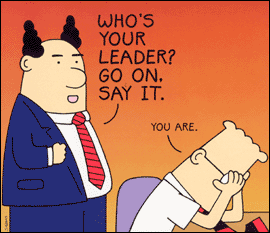What a cruel government we have. What a very cruel, cruel government. Here's the CNA report:
Government shortlists potential sites to build retirement village
17th April 2006
SINGAPORE : The government has shortlisted a few potential sites for the construction of a retirement village, and the National Development Ministry is currently studying the details.
The sites are on a 30-year land lease.
And one of them will be picked to test market demand for such villages.
In an exclusive interview with MediaCorp's Channel 8, Health Minister Khaw Boon Wan said in the past, the idea of building retirement villages was put on the back burner as Singapore's problem of an ageing population was not as serious as that in Europe and America.
The Singapore market was also too small for retirement villages to be commercially viable.
But the prospects have since changed.
With a rapidly ageing Singapore population, Mr Khaw said in five years' time, retirement villages will become economically viable.
One obstacle is the high costs of land in Singapore.
"My personal view is, our land is expensive. But we have nearby neighbours in Johore, Batam and Bintan. The elderly want to reach their doctors within half to one hour. So retirement villages in neighbouring countries is possible, barring the cross-border hassle. It is best to find cheap land on short leases," said Health Minister Khaw Boon Wan.
- CNA /ls
Let me explain what the government is thinking. Thanks to Singapore's unique way of getting citizens to finance their own housing through the mandatory savings scheme known as CPF, the percentage of Singaporeans who own their own homes has become very high.
In fact, even if you look at the poorest 20 per cent of HDB families, you find that nearly nine out of 10 of them own the roof over their heads. The fact that so few Singaporeans are homeless is something which the government has endlessly bragged about for decades.
The problem is that the government's schemes have made many older Singaporeans asset rich but cash poor. Every month, a big part of their monthly salary is compulsorily deducted for their CPF account, and then, if they have a HDB mortgage, the CPF account is deducted to pay for the mortgage.
As time goes by, the result is an entire nation of people who conscientiously pay up for their homes, month after month, year after year. Therefore even the poor own homes.
An impressive result. Until you realise that the poor don't have any money left over to pay for anything else.
That's why in the last economic downturn, we saw Singaporeans who owned apartments worth $100,000 to $200,000, but who lived without electricity and water in those apartments (they couldn't pay their utilities bill) and had to scrounge for leftover scraps in rubbish bins and hawker centres.
The solution seems obvious. Sell the flat, collect the $200,000, pay off the remaining mortgage, downgrade to a cheaper home, and live on the excess cash.
The problem is that in land-scarce Singapore, there are no cheaper homes to downgrade to.
And now we have an aging population, an increasing percentage of old folks who can't work anymore even if jobs were available. Since they can't work, they can't support themselves. They have homes, but they can't support themselves.
The Singapore government has always prided itself on the economic prosperity that it creates for this country. Wouldn't it be sooooo embarrassing, if poor old people started appearing on the streets everywhere, begging for food and money?
Khaw Boon Wan's brainchild - build retirement villages in Bintan and Johor. Cheap, abundant land! The old & poor can sell their HDB flats, use the money to buy an inexpensive home in Bintan, and live on the leftover cash.
In other words, export our senior citizens. Send them away when their economic productivity has come to an end.
Anyone remember Boxer, the workhorse, from George Orwell's novel Animal Farm?
For years, Boxer worked so hard for the farm, selflessly giving all his strength to his work. When finally he grew old and weak, Napoleon sent him away from the farm, the only home that Boxer had ever known.
Napoleon told everyone that Boxer was going to a hospital for medical care. Later he told everyone that Boxer had died in hospital.
In truth, Boxer was sold to a butcher.
And became horsemeat.

The government is sickening.
I can't express how disgusted I feel. This is OBVIOUSLY a scheme to get rid of old and poor Singaporeans.
Do you imagine that Lee Kuan Yew would retire to Bintan? Or Goh Chok Tong?
It's like, everything is just a matter of dollars and cents to this government. Everything. Including poor old people.











